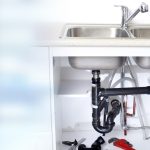Choosing Brewing Fittings
There are a few concerns when choosing brewing fittings, and your needs will vary based on your available funds and the needs of your setup. The main thing you’ll want to consider are the materials from which the fittings are made, with stainless steel and brass being the most popular choices. Both have advantages and disadvantages, and neither is always the better choice. Another issue is whether you want fittings to be weldless kits or to use welded variants, and again, both are better for certain scenarios.
Stainless Steel vs. Brass
While there are many different materials from which brewing fittings can be made, by far the most common two options are brass and stainless steel. Brass tends to be affordable, while stainless steel is perhaps the most expensive option of all common materials. Brass is softer, which means not only that it is less physically durable than steel, it also has a higher rate of thermal conductivity. Stainless steel is not typically used in heated applications because of its poor thermal conductivity.
Stainless steel is non-reactive, meaning that it does not interact with the liquid beer in any way that affects either the flavor of the brew nor the steel itself. The exception to this is oxidation, which can occur when beerstone is allowed to build up on the steel (it can be removed with a caustic and an acidic cleanser) or when the steel is not properly cleaned. Copper, which is present in brass alloy, can react with liquids in both beneficial and detrimental ways. During the fermentation process, copper helps remove hydrogen sulfide from the brew, whereas after fermentation it can produce hydrogen peroxide (which is not desirable), and therefore it is important to consider where in the brewing process brass equipment and brewing fittings will be used.
Welded vs. Weldless Fittings
It can be difficult to decide between welded and weldless brewing fittings, as both offer certain advantages. Weldless fittings are cheaper and more readily available. Welded fittings have a higher price tag due to the cost of materials plus labor involved, but a good weld job means a more reliable and durable fitting.
However, the risk of a poor welding job can actually make for more trouble than it’s worth, so if you are willing to put down the extra cash for welded fittings then it should be entrusted to a knowledgeable welder. The main reason it can be difficult to find a welder to handle a fitting is that this type of job requires sanitary welding practices, which is a type of welding reserved for culinary and medical applications. If you can locate a sanitary welding expert, however, the extra money is well worth the benefit.





